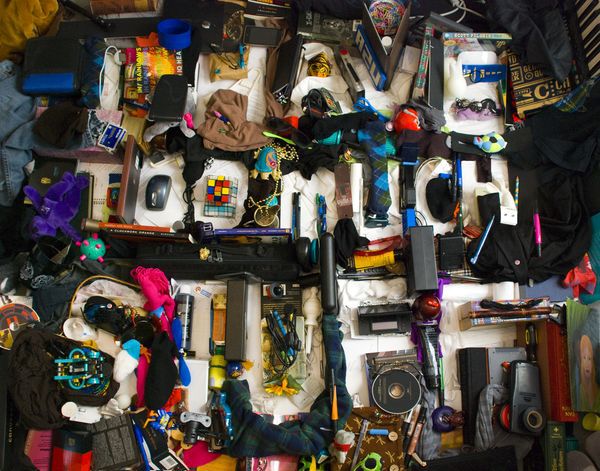The logical place to start when you decide to limit the stuff in your home or office is at the source – shopping. If you have a broken water pipe, you do not start by mopping the floor, you turn off the water. In the same way, if you can resist those needless trips to the mall and garage sales and develop some good old-fashioned willpower, you will have less of a clutter problem. There are books that can help you with that, including my e-book, Strengthen your brain’s executive skills, published by Bookboon.com.
Your brain has a mind of its own. And since it gets a shot of the pleasure chemical, dopamine, every time it sights a shiny new thingamabob on the shelf, shopping can become addictive. And marketers who continue to get better at targeting our subconscious desires are not making it any easier for us. Martin Lindstrom, author of the book Buy.ology: the truth and lies about why we buy, claims that buying and consuming will continue to escalate in the future.
Experts tell us to get rid of a habit by replacing it with a better one. I feel you can replace the habit of marathon shopping with the activity of organizing. You can’t be in two places at the same time, and when you’re at home sorting and tossing things out, you can’t be at the mall being exposed to the temptations created by the shiny new gadgets and endless paraphernalia. And you also get a shot of dopamine every time you accomplish a task such as cleaning out a kitchen drawer, or donating something to the needy, or gifting an unused item to a friend.
You probably have no problem keeping digital files instead of reams of paperwork. It is just a small leap from storing paperwork as digital images to storing your stuff as digital photos. They do not need dusting, and in most cases are just as functional. If you miss looking at them, use the photos as rotating screen savers. But I think you will find that out of sight, out of mind.
Consider selling your stuff on Kijiji or eBay. An Australian survey conducted in August 2008 by eBay indicated that the average household has about $3000 worth of unused or unwanted clutter around the house. The price of the items was determined by the average price of comparable items listed on eBay. I figured if it is true for Australians, it is probably true for the rest of us as well. If we held a garage sale, we might be over $1000 richer and be able to move the car into the garage to boot. Just think; selling your clutter can become your bread-and-butter.
If you think parting with your accumulated possessions would be too traumatic try this. Pack them into a carton or better still, a few transparent plastic storage containers, and stack them inside a closet or in the basement or stick them in your storage locker. Then you can easily retrieve them if you feel depressed or about to slip into a coma.
But do not rent public storage. The eventual goal is to get rid of the stuff once you have realized you neither need it nor miss it. The more remote your place of storage, the more remote the chance that you will ever get rid of it. According to the August 2017 special edition of Mindfulness magazine, there are 2.3 billion square feet of rentable self-storage space in the United States. That is three times the size of Manhattan, New York. That is a lot of stored possessions waiting for us to die.
Most people do not enjoy their stuff even when it is visible. According to Dan Levitin, author of The organized mind, the brain habituates to things that don’t change, and you no longer notice it if it’s always there. He also mentioned a study of one American household with 2260 visible objects in just a living room and two bedrooms. How would anyone have time to even look at everything, let alone enjoy it? So, keep visible only those things you need or use regularly. And never keep what you cannot use.
I think you will feel unencumbered, free, and happier with your new uncluttered space and a sense of pride in your new accomplishment. You may also find you are more productive, more creative, and more able to focus on your significant goals and daily activities.
Memorabilia that tie you to the past frequently keep you from fully enjoying the future. Recalling good times are never as enjoyable or as stimulating as creating new ones.
Neurologists tell us that our brains are hardwired to be creative and to achieve goals. Clutter is to your brain as mud is to your feet. Do not let it get deeper and deeper and impede your progress through life. Be like the perfectionist bride who, when it was time to sweep down the aisle, literally swept down the aisle. A new broom sweeps clean, and a clean start creates a path to a better life.
Note: More suggestions on avoiding the packrat syndrome appear in next week’s blog.
Successful People Read. A Lot.
What do Warren Buffett, Mark Zuckerberg, Elon Musk and Oprah Winfrey have in common? They all read - a LOT! If you want to be successful you need to read. We have over 30 short ebooks designed to get you booked up fast!



Recent Comments